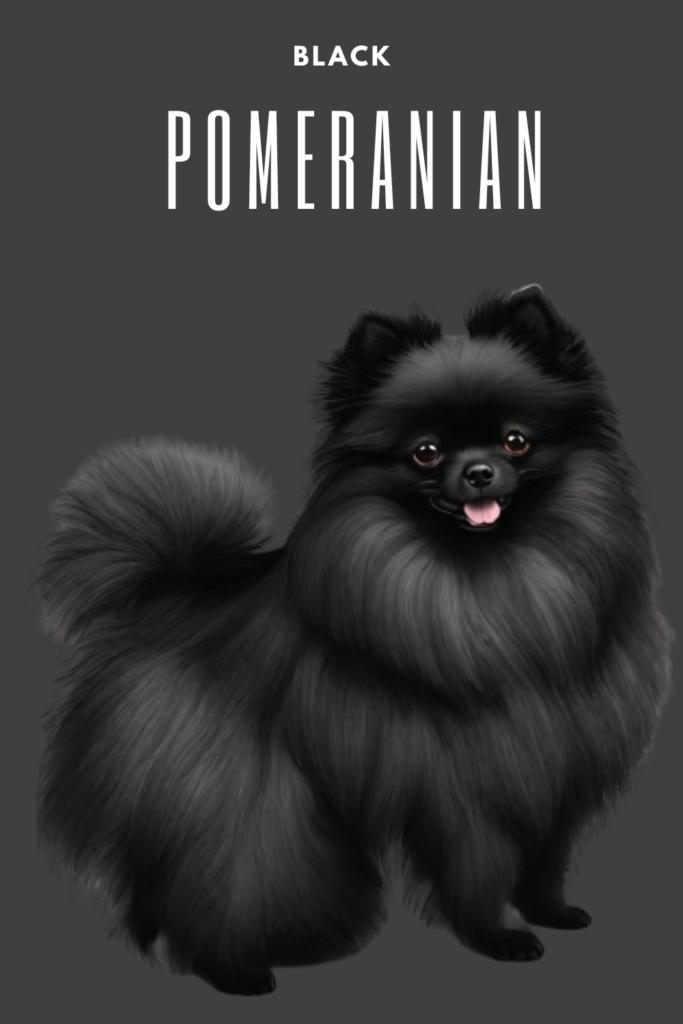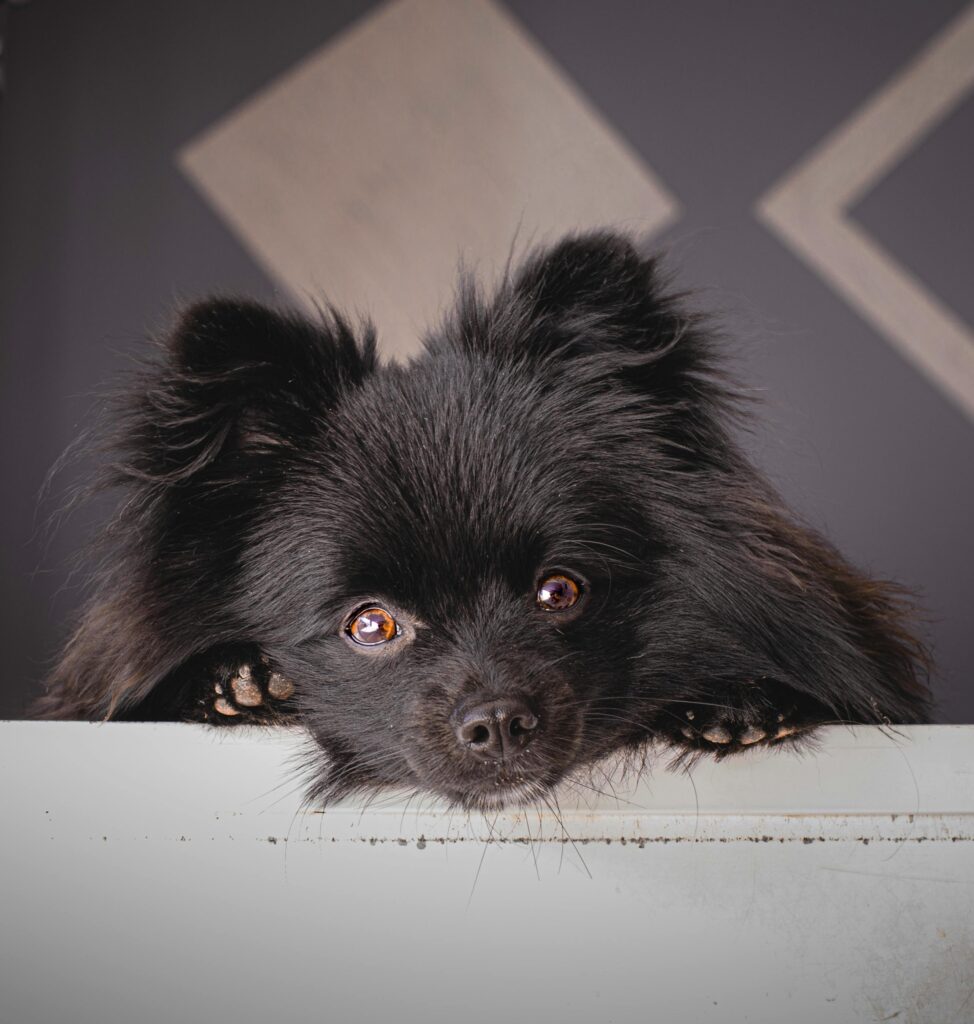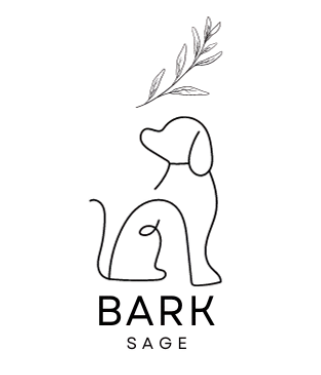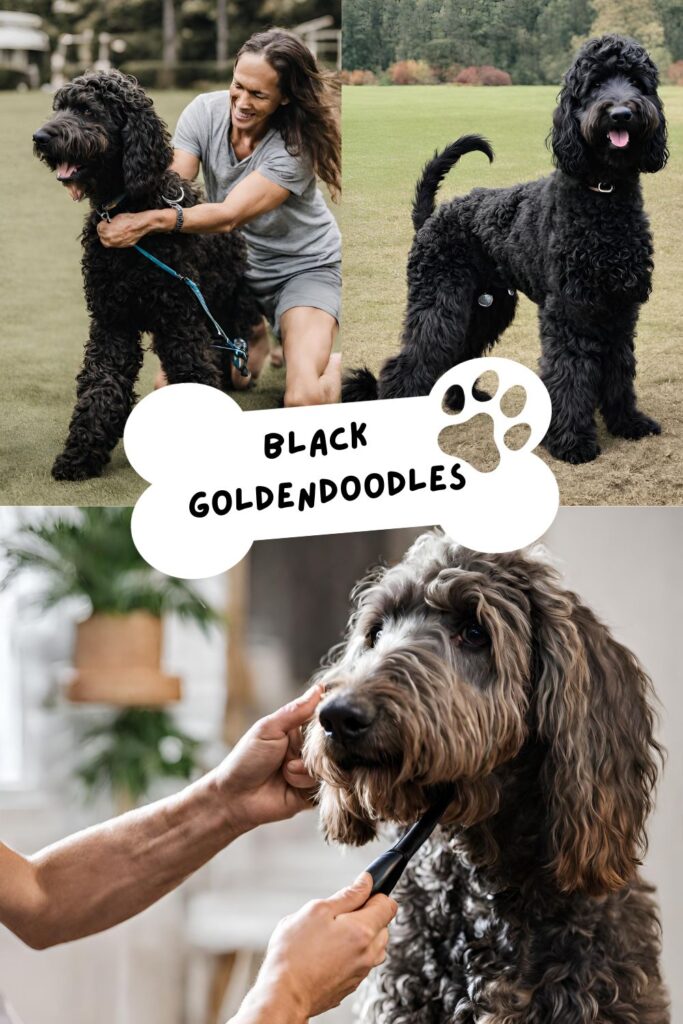Introduction

Delve into the enchanting world of Black Pomeranian dogs, where charisma meets a coat of rich ebony. In this complete breed information guide, we’ll uncover the history, genetics, appearance, grooming needs, and more, providing a comprehensive view of these captivating companions.
History of the Black Pomeranian
Unearth the historical roots of Black Pomeranians. Trace their journey through time and discover how they became the captivating breed we know today.
The history of the black Pomeranian is intertwined with the broader evolution of the Pomeranian breed. Originating from the larger working dogs of the Arctic regions in the Pomerania region, the breed underwent a significant downsizing over the centuries. Notably, during the 18th and 19th centuries, Pomeranians gained favor among European royalty, particularly Queen Victoria, further contributing to their miniaturization through selective breeding. Black Pomeranians, with their sleek and striking coats, have been a consistent and popular variation in the breed.
The breed’s transition from working roles to cherished companions reached a milestone in official recognition by kennel clubs. Today, black Pomeranians, known for their vibrant personalities and diverse coat colors, continue to captivate dog enthusiasts worldwide as delightful and elegant companions.
Black Pomeranian Genetics
Unravel the genetic mysteries behind Black Pomeranians. Explore the role of dilutes and recessive genes in determining their distinctive coat color.
The genetics of coat color in Pomeranians, including the black coloration, involve a combination of inherited genes from both parents. The primary factors influencing coat color are the presence or absence of specific pigments, primarily eumelanin (black pigment) and phaeomelanin (red/yellow pigment). Here are key genetic aspects related to black Pomeranians:
Gene Expression:
- Coat color in dogs is determined by various genes, and each gene has different alleles (versions). The interaction of these alleles influences the expression of specific colors.
Eumelanin Production:
- The black color in Pomeranians is a result of the presence of eumelanin. The genes responsible for producing eumelanin are typically dominant, meaning that if a Pomeranian inherits one or two dominant alleles from its parents, it will express a black coat.
Recessive Genes:
- Recessive genes, if present, can influence the expression of coat color. For example, a Pomeranian with a black coat may carry recessive genes for other colors. If both parents carry and pass on recessive genes for a different color, it may result in puppies with that alternate color.
Coat Pattern Genes:
- In addition to solid color genes, coat pattern genes can also play a role. Some Pomeranians may have solid black coats, while others may have black coats with specific patterns, such as tan points or markings.
Genetic Testing:
- Breeders may use genetic testing to understand the color genetics of their breeding pairs. This helps predict potential coat colors in the offspring and avoid undesirable pairings, such as those carrying recessive genes for colors not desired in the breed standard.
It’s important to note that while genetics play a significant role in determining coat color, other factors, such as age, health, and environmental influences, can also impact the appearance of a dog’s coat. Responsible breeding practices involve considering genetics to produce healthy and standard-compliant puppies. For accurate information on the specific genetic makeup of a black Pomeranian, consulting with a qualified veterinarian or a canine geneticist is recommended.
Black Pomeranian Puppies
Embark on a journey through the early stages of Black Pomeranians’ lives. Discover what to expect when welcoming a Black Pomeranian puppy into your home and tips for their proper care and upbringing.
Black Pomeranian puppies are enchanting with their tiny size and glossy black coats. Known for their lively and confident personalities, these puppies exhibit a curious and playful demeanor. Regular grooming is essential to maintain their fluffy and shiny fur. Early training and socialization contribute to their development into well-mannered and sociable adult dogs.
Prospective owners should be prepared for the small size of both puppies and adults, with adult black Pomeranians typically weighing between 3 to 7 pounds. Health considerations, such as dental care and regular veterinary check-ups, are crucial for their overall well-being. Choosing a reputable breeder ensures that the puppies come from a healthy lineage, and a commitment to their long-term care is essential, given their average lifespan of 12 to 16 years.
Whether adopted from a breeder or rescue organization, black Pomeranian puppies bring joy and companionship to their owners’ lives.

Black Pomeranian Appearance
Dive into the aesthetics of Black Pomeranians. Uncover details about their size, color variations, and physical features that contribute to their undeniable allure.
Black Pomeranians, like their counterparts of different colors, are known for their distinctive and charming appearance. Here are key characteristics of the black Pomeranian’s appearance:
Coat Color:
- The defining feature of a black Pomeranian is its solid black coat. The fur is typically dense, straight, and shiny. While some Pomeranians may have a slight variation in color or markings, a true black Pomeranian has an overall black hue.
Size:
- Pomeranians are a small toy breed, and black Pomeranians are no exception. They have a compact and sturdy build, with a fox-like expression. Adult Pomeranians generally weigh between 3 to 7 pounds.
Face and Expression:
- Black Pomeranians have a distinctive foxy face with a well-defined muzzle and small, bright eyes. Their expression is alert, intelligent, and often displays a curious demeanor.
Ears:
- Pomeranians have small, erect ears that contribute to their expressive appearance. The ears stand erect on the head, giving them a perky and alert look.
Tail:
- The tail of a black Pomeranian is set high and lies flat on the back. It is often profusely plumed, adding to the overall elegance of the breed.
Double Coat:
- Pomeranians have a double coat, consisting of a soft, dense undercoat and a longer, harsh-textured outer coat. The double coat provides insulation and gives the breed its characteristic fluffy appearance.
Pom Expression:
- The breed standard emphasizes a distinctive “Pom expression,” which combines a sweet, animated look with an intelligent and alert demeanor. This expression is a hallmark of the Pomeranian breed.
Grooming:
- Regular grooming is essential to maintain the black Pomeranian’s coat in optimal condition. Brushing a few times a week helps prevent matting and keeps the coat shiny.
Color Variations:
- While black is a standard color for Pomeranians, some may exhibit additional color variations or markings, such as tan points or a small white patch on the chest. These variations, while acceptable, should not dominate the overall black coat color.
Black Pomeranians showcase a delightful combination of elegance and charm, making them popular as both companions and show dogs. Their striking black coats, paired with their lively personalities, contribute to their status as beloved pets.
Are Black Pomeranians Rare?
Address the intrigue surrounding the rarity of Black Pomeranians. Gain clarity on their prevalence and what makes them stand out in the Pomeranian world.
Black Pomeranians are not considered rare within the breed. While certain coat colors and patterns may be more commonly associated with Pomeranians, black is a standard and widely accepted color in the breed standard. Pomeranians come in a variety of colors, including black, orange, cream, blue, sable, chocolate, and more
Black Pomeranians Quick Facts
Here are some quick facts about Pomeranians, including those with black coats:
- Pomeranians are a small toy breed, typically weighing between 3 to 7 pounds.
- Pomeranians come in a variety of coat colors, including black, orange, cream, blue, sable, chocolate, and more.
- They have a double coat consisting of a soft, dense undercoat and a longer, harsh-textured outer coat.
- Pomeranians are known for their lively, bold, and confident personalities. Despite their small size, they often have a big personality.
- Pomeranians are intelligent and trainable, making them suitable for various activities, including obedience and agility.
- Pomeranians have an average lifespan of 12 to 16 years, and some may live even longer with proper care.
- Despite their small size, Pomeranians are energetic and benefit from regular exercise, including playtime and short walks.
- Regular grooming is essential to maintain their coat health. Brushing a few times a week helps prevent matting.
- Pomeranians have a keen sense of alertness, making them effective watchdogs. They are likely to bark to alert their owners to any perceived threats.
- Pomeranians can adapt well to various living environments, including apartments, as long as they receive sufficient attention and exercise.
How Much is a Black Pomeranian?
Delve into the financial aspects of owning a Black Pomeranian. Understand the typical costs associated with purchasing or adopting, along with ongoing expenses for their care.
The cost of a black Pomeranian can vary widely based on factors such as the breeder’s reputation, lineage, location, and whether the puppy has undergone health checks and vaccinations. On average, you can expect to pay anywhere from $500 to $3,000 or more for a black Pomeranian puppy. Reputable breeders who prioritize the health and well-being of their dogs and adhere to breeding standards may charge higher prices.
Additionally, factors such as coat quality, lineage, and demand for specific colors can influence the price. It’s crucial to research and choose a responsible breeder, ensuring that the cost reflects the care and breeding standards provided. Prices may have changed since my last update, so it’s advisable to check with breeders directly for the most current information
To find out more about Pomeranian prices, check out this blog post: Pomeranian Prices in 2024: Discover 10 SHOCKING Factors that Influence the Price
Where Can I Buy a Black Pomeranian?
Navigate the process of acquiring a Black Pomeranian responsibly. Learn about reputable sources and considerations when choosing a breeder or adoption center for your future furry friend.
To find a black Pomeranian, you have several options:
- Reputable Breeders: Look for reputable Pomeranian breeders who prioritize the health and well-being of their dogs. You can find breeders through online directories, breed clubs, or recommendations from local veterinarians.
- Rescue Organizations: Consider adopting a black Pomeranian from a rescue organization or animal shelter. Many purebred dogs, including Pomeranians, end up in shelters and rescues, and adopting from these organizations can be a rewarding experience.
- Online Platforms: There are online platforms and websites where breeders advertise their puppies. However, exercise caution and thoroughly research any breeder you find online to ensure they adhere to ethical breeding practices.
- Local Events and Shows: Attend local dog shows or events where reputable breeders may showcase their Pomeranians. This gives you the opportunity to meet breeders in person, see their dogs, and discuss the possibility of acquiring a black Pomeranian.
- Breed Clubs: Contact Pomeranian breed clubs or organizations, as they often have breeder directories or can provide recommendations.
Regardless of your chosen avenue, it’s essential to do thorough research on any breeder or organization you are considering. Ensure they prioritize the health and ethical treatment of their dogs, conduct health checks, and provide a clean and caring environment for the puppies. Meeting the puppy’s parents, asking for references, and obtaining health clearances are good practices to ensure you are getting a healthy and well-cared-for black Pomeranian.
Black Pomeranian Grooming and Black Pom Coat Care
Discover specific products that cater to the unique needs of Black Pomeranian coats. Learn about grooming tools and items essential for their overall well-being.
Grooming a black Pomeranian, or any Pomeranian, requires regular attention to maintain their double coat in good condition. Here are some grooming and coat care tips:
- Brushing: Pomeranians have a thick double coat that can become prone to matting and tangling. Brush your black Pomeranian’s coat at least a few times a week using a slicker brush or comb. This helps prevent mats, removes loose fur, and keeps the coat shiny.
- Bathing: Pomeranians generally do not require frequent baths, as over-bathing can strip their coat of natural oils. Aim to bathe your black Pomeranian every 4-6 weeks or as needed. Use a mild dog shampoo, and be sure to thoroughly rinse to avoid residue.
- Coat Quality: A healthy diet contributes to the overall quality of your Pomeranian’s coat. Ensure they receive a balanced and nutritious diet, and consult with your veterinarian if you have concerns about their coat condition.
- Trimming: While Pomeranians don’t require extensive trimming, you may need to trim the hair around their paws and sanitary areas. Regular nail trimming is also essential.
- Teeth and Ears: Pomeranians are prone to dental issues, so regular teeth brushing is advisable. Check their ears regularly for dirt or wax buildup, and clean them as needed.
- Professional Grooming: Some Pomeranian owners opt for professional grooming services. Professional groomers can provide a more thorough grooming, including trimming and shaping the coat.
- Seasonal Shedding: Pomeranians experience seasonal shedding, known as blowing their coat. During these times, they may shed more than usual. Increased brushing can help manage shedding and keep loose fur under control.
- Eye Staining: Pomeranians, including black ones, may be prone to tear staining. Regularly clean the area around their eyes with a damp cloth to prevent staining.
Remember that individual Pomeranians may have different grooming needs, and it’s important to tailor your grooming routine based on their specific coat condition. Additionally, starting grooming habits from a young age helps your Pomeranian become accustomed to the process, making grooming a more enjoyable experience for both you and your pet.
Final Thoughts on Black Pomeranian Dogs
Wrap up the exploration of Black Pomeranians with final thoughts on their allure, care requirements, and the joy they bring as companions. Summarize the key takeaways from this comprehensive guide.
Conclude the journey through the world of Black Pomeranian dogs with an invitation to readers to share their thoughts, experiences, and any additional questions they may have. Invite them to engage in the conversation and celebrate the charm of these exquisite ebony companions.


